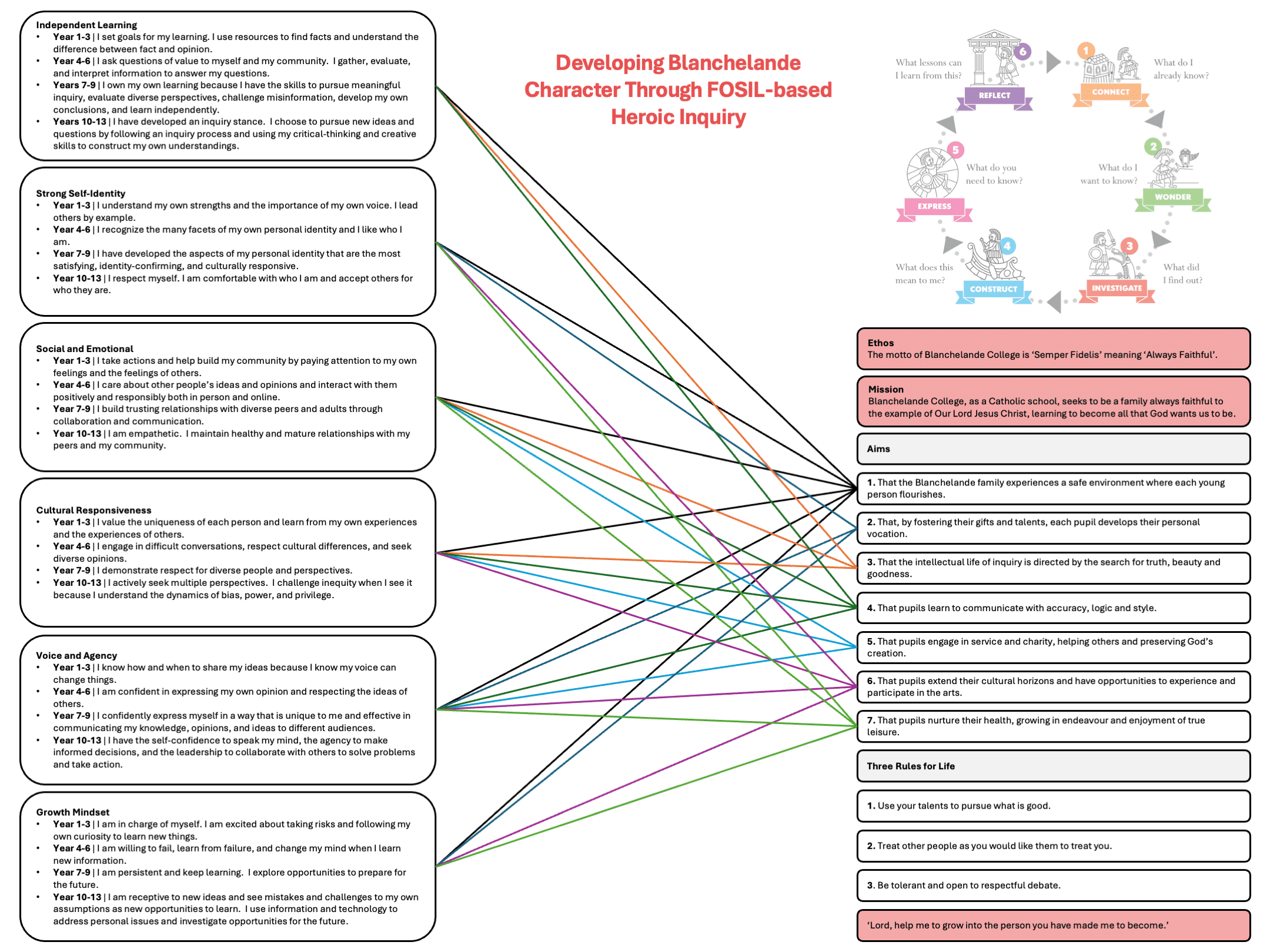Episode 15 (and Episode 14) now available.

One of the things Elizabeth and I touch on is the problem of how what a school does, particularly in the classroom, combines to actually achieve what a school claims to aim to do.
Inquiry has as its end engaged and empowered inquirers, the attributes of whom are developed systematically and progressively through inquiry (see below), which is directed at acquiring disciplinary knowledge in an interdisciplinary way. These attributes, therefore, describe the emergence of a certain type of learner – a Heroic Inquirer in the terms of our work on aligning the stages of the information-to-knowledge learning journey (see, for example, the IFLA School Library Guidelines) with the hero’s life journey (see, for example, The Hero with a Thousand Faces). An exciting focus of our recent work at Blanchelande is mapping the attributes of a Heroic Inquirer to the type of character that a Blanchelande education aims to develop, which makes it increasingly clear that inquiry – properly understood and supported – enables the classroom both to achieve its aims in terms of acquiring knowledge and contribute directly to the school achieving its aims in terms of developing a certain type of person.
It is worth reflecting on this from the perspective of Jacques Maritain’s profound observation: “Nothing is more important than the events which occur within that invisible universe which is the mind of [a person]. And the light of that universe is knowledge. If we are concerned with the future of civilization we must be concerned primarily with a genuine understanding of what knowledge is, its value, its degrees, and how it can foster the inner unity of the human being.” (The Range of Reason, 1952, p. 3)
